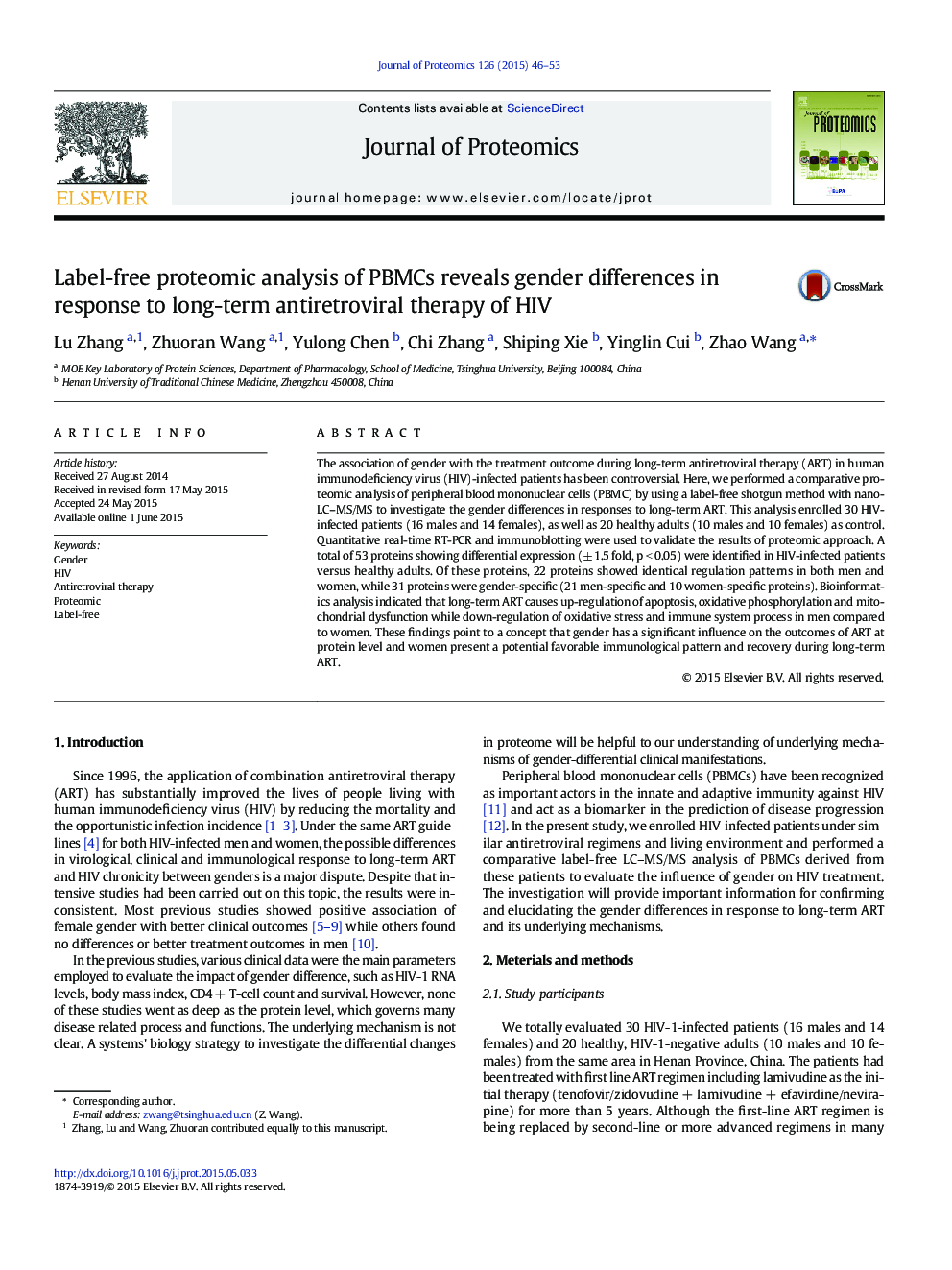| Article ID | Journal | Published Year | Pages | File Type |
|---|---|---|---|---|
| 1225504 | Journal of Proteomics | 2015 | 8 Pages |
•Gender differential analysis in HIV-infected patients on long-term ART was performed by label-free LC–MS/MS.•A significant, although small influence of gender on HIV treatment was identified at protein levels.•A potential favorable profile at immunological response to HIV treatment in women was suggested.
The association of gender with the treatment outcome during long-term antiretroviral therapy (ART) in human immunodeficiency virus (HIV)-infected patients has been controversial. Here, we performed a comparative proteomic analysis of peripheral blood mononuclear cells (PBMC) by using a label-free shotgun method with nano-LC–MS/MS to investigate the gender differences in responses to long-term ART. This analysis enrolled 30 HIV-infected patients (16 males and 14 females), as well as 20 healthy adults (10 males and 10 females) as control. Quantitative real-time RT-PCR and immunoblotting were used to validate the results of proteomic approach. A total of 53 proteins showing differential expression (± 1.5 fold, p < 0.05) were identified in HIV-infected patients versus healthy adults. Of these proteins, 22 proteins showed identical regulation patterns in both men and women, while 31 proteins were gender-specific (21 men-specific and 10 women-specific proteins). Bioinformatics analysis indicated that long-term ART causes up-regulation of apoptosis, oxidative phosphorylation and mitochondrial dysfunction while down-regulation of oxidative stress and immune system process in men compared to women. These findings point to a concept that gender has a significant influence on the outcomes of ART at protein level and women present a potential favorable immunological pattern and recovery during long-term ART.
Graphical abstractFigure optionsDownload full-size imageDownload high-quality image (111 K)Download as PowerPoint slide
